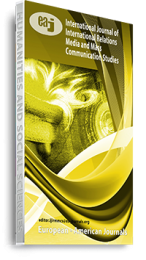A problem of choice exists, where no identifiable issue separates political candidates in political advertisements. This study evaluates voters’ disposition to select either Goodluck Jonathan of the PDP or Muhammadu Buhari of the APC, in the March, 2015 presidential election in Nigeria, based on voter-perception of their presented television commercials. A sample of 377 was purposively drawn from three states in South-East Nigeria, which have different political leadership. Abia State is PDP, Imo is APC while Anambra State is APGA, which has no presidential candidate from that party. It was found that voter disposition and behaviour are based on how presented political messages related to voter expectation; that the choice of a unique selling proposition in political advertisements is not a major compelling force for candidate selection at election. It means that messages which contain no specific measureable item are weak in persuading positive patronage. It shows that the electorate should know why a candidate is to be preferred to another in elections. This is the essence of unique selling proposition in political advertising.
Keywords: Voter-perception; unique selling proposition; political advertisement

